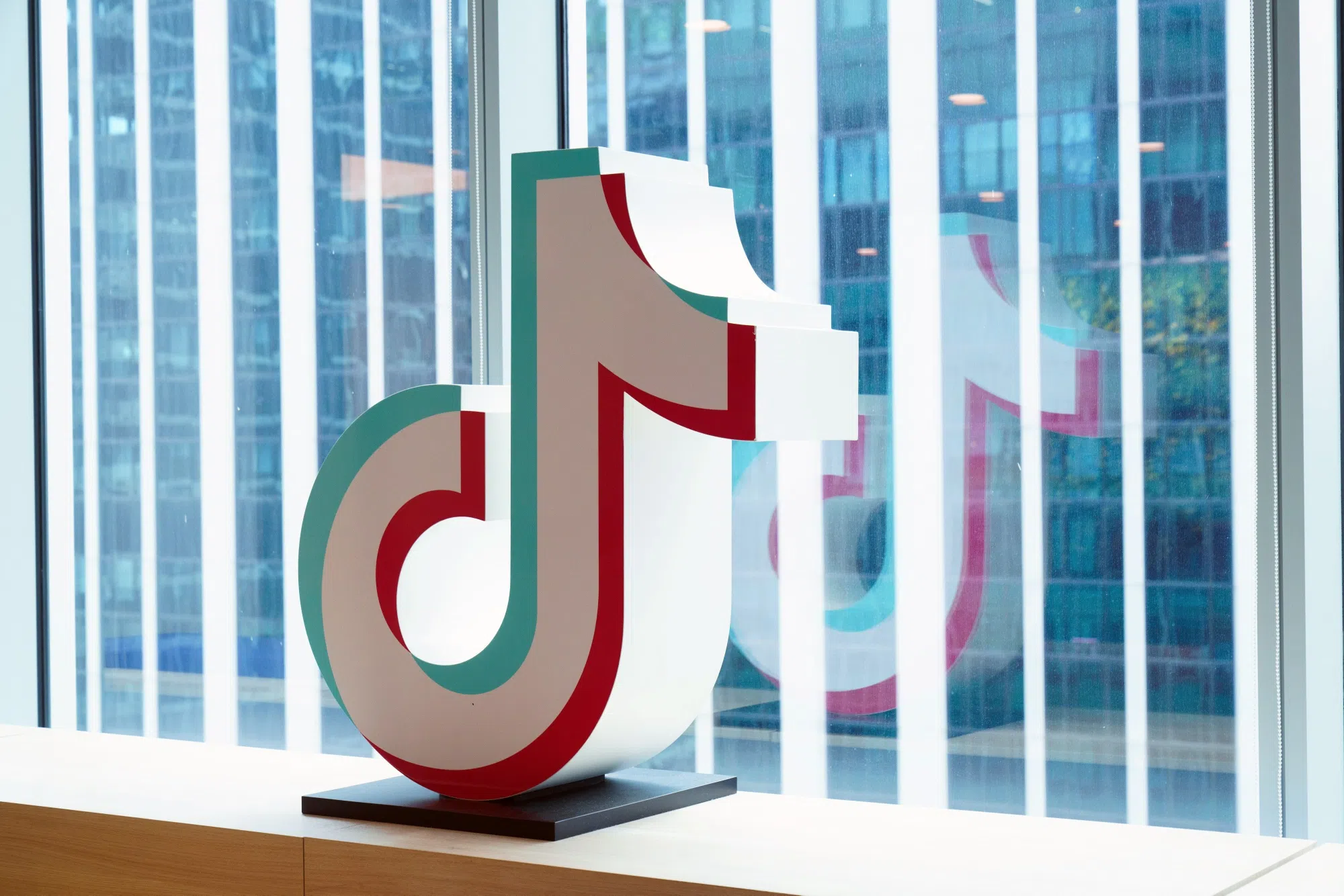TIKTOK is barreling towards a nationwide ban in the US.
President Joe Biden signed bipartisan legislation in April 2024 designed to shut down the social media app in the US unless its Chinese owner gives up control. TikTok’s parent, ByteDance, was given until Jan 19, 2025, to find an American buyer and agree to a sale, which the tech giant has said it’s unwilling to do.
TikTok, ByteDance and content creators have been waging a legal battle to block the law from taking effect. While a lower court has so far upheld the divest-or-ban law, the US Supreme Court will hear TikTok’s challenge on Jan 10 – effectively the company’s last-ditch legal effort to thwart the ban. Adding to the uncertainty is president-elect Donald Trump, who has said he opposes a ban, reversing the stance he took in his first term. He’s asked the justices to pause the law until he takes office on Jan 20 in hopes he can “seek a negotiated resolution”.
Where does TikTok’s legal case stand?
In early December, the US Court of Appeals for the DC Circuit ruled that the law does not violate free speech protections under the Constitution’s First Amendment and that the government appeared justified in its national security concerns that China could use the platform to collect data on American citizens and to push propaganda.
The Supreme Court decided to take up TikTok’s legal challenge, but declined to temporarily block the law. In effect, TikTok still faces a Jan 19 ban if the justices uphold the law and ByteDance fails to find a buyer.
Matthew Schettenhelm, an analyst for Bloomberg Intelligence, gives TikTok just a 30 per cent chance of winning at the Supreme Court. He called the justices’ decision to take the case “highly unusual, yet we don’t think it signals TikTok will prevail”.
BT in your inbox
Start and end each day with the latest news stories and analyses delivered straight to your inbox.
If the law goes into effect, the “ban” means that companies such as Oracle, Apple and Alphabet’s Google face liabilities if they continue to provide the support TikTok needs to live on their platforms.
What can Trump do?
The law takes effect before Inauguration Day. Trump may – once he’s president – have certain levers to pull if he decides to be friendly to TikTok. For one, enforcement of the law is entirely in the hands of the Justice Department, whose leadership is picked by the president. And should ByteDance agree to sell TikTok, it would be Trump who determines whether the divestiture plan adequately separates the app from Chinese control. The law also says the president can delay the ban for 90 days if progress towards a divestiture deal has been made. Each of those provisions is untested so it’s not clear exactly how much room to manoeuvre Trump would have.
TikTok and content creators are hoping that the incoming administration will intervene. TikTok CEO Shou Chew met with Trump at the president-elect’s Mar-a-Lago club in December, and the company’s attorneys have argued in court papers that the Trump administration could pause enforcement of the law or “mitigate its most severe potential consequences”.
What are the politics involved?
Trump’s flip-flop on what to do about TikTok has complicated matters. Some Republicans have major financial incentives for TikTok to survive in the US – especially Susquehanna International Group co-founder Jeff Yass, a megadonor who has held a US$15 billion stake in ByteDance.
Banning TikTok is also politically unpopular in the US, where roughly half the population is on the app, and it’s beloved in particular by the Gen Z voting bloc. Support for a TikTok ban has declined among US adults, according to Pew Research Center data from this past summer.
Then there’s the impact on US-China relations to consider, with ties strained by years of tension between the world’s two largest economies. When the Trump administration pressed for TikTok’s sale years ago, China’s foreign ministry said that the precedent of acquiring a company under the pretence of protecting national security could lead to foreign countries targeting US companies, calling it the opening of a “Pandora’s box”.
Yet several Republicans appointed to Trump’s Cabinet and other key positions have helped lead the charge in Washington against TikTok on national security grounds. Trump’s pick for secretary of state, Marco Rubio, was the lead senator on bipartisan legislation to ban the app. And Representative Mike Waltz, whom Trump tapped as national security advisor; South Dakota Governor Kristi Noem, his choice to lead the Department of Homeland Security; and FCC commissioner Brendan Carr, his nominee for chair of the agency, are all longtime TikTok foes.
Why did Congress act against TikTok?
The concern among US lawmakers is that TikTok poses a security threat to US users because China requires its companies, upon request, to share any national security-related data with the government. There are fears that the Chinese government could abuse the data of TikTok’s users, for example by developing profiles of them and subjecting them to blackmail, and that it could influence the content American users see on the app.
What’s TikTok’s response?
TikTok has pushed back vehemently on these concerns and spent more than US$2 billion on a project it says cordons off US users’ data from China. In a May 5 court filing challenging the law as a violation of the First Amendment, it said: “For the first time in history, Congress has enacted a law that subjects a single, named speech platform to a permanent, nationwide ban, and bars every American from participating in a unique online community with more than one billion people worldwide.”
If it loses in court, would ByteDance actually sell TikTok?
ByteDance has emphasised it’s unwilling to sell its US TikTok business, and no clear buyer who might change that has emerged. But if the Supreme Court upholds the ban, ByteDance could become more open to the prospect of a sale.
Of course, ByteDance has every reason to push back against separating from TikTok’s incredibly valuable business. The Chinese government would also need to approve any divestiture plan and has said publicly that it would oppose a forced sale. Additionally, ByteDance says untangling TikTok’s operations from the parent company is, technologically, nearly impossible.
Who would buy TikTok?
Anyone buying the company would need a fat pocketbook. ByteDance, which is privately traded, has an estimated valuation of about US$268 billion, and while TikTok’s US business would be much smaller, it could still fetch a price of around US$40 billion to US$50 billion. One potential buyer, billionaire Frank McCourt, said he believes the app could fetch US$25 billion even without some of its key software. By comparison, Elon Musk paid US$44 billion for X, the social media platform formerly known as Twitter, in 2022.
A price tag that high eliminates most potential buyers. Microsoft was one of the leading candidates to buy TikTok’s US business in 2020, but that deal ultimately fell apart. Meta Platforms and Alphabet might seem logical acquirers, but they are mired in regulatory concerns over monopolisation that would essentially rule them out.
Oracle was initially seen as a likely landing spot, as the enterprise software company is already a TikTok partner in the US. It houses the app’s US user data and was interested in possibly buying the app when then-president Trump tried to force a sale in 2020. However, Oracle has around US$89 billion in debt, including from another large acquisition in 2022, making it unlikely the company could afford TikTok on its own.
McCourt has also laid out a plan to buy a large part of the business and rebuild it into “TikTok 2.0”. Former Treasury Secretary Steven Mnuchin has also said he’s interested in buying the US operation. But none of these possibilities has advanced significantly in the face of ByteDance’s steadfast opposition.
Could TikTok survive without the US market if it’s ultimately banned?
Probably. On its website, TikTok boasts that it is the No 1 downloaded app in more than 40 countries. Even though the US is a big audience, its more than 170 million monthly users are still a fraction of TikTok’s total billion-plus users. ByteDance already operates a TikTok clone in China, called Douyin, with hundreds of millions of users.
Still, as other platform operators have learned, the US is the most valuable market for social networks because of the prevalence of large advertisers willing to pay to reach US consumers. And ceding the US to a competitor would put the rest of TikTok’s global markets at risk, as there would be real concern that users outside the US could be lured to TikTok alternatives.
A ban would also kill TikTok’s big ambition to expand the US version of its TikTok Shop, an e-commerce arm that combines online entertainment with impulse buying. Even amid intense regulatory scrutiny, Shop has remained one of the fastest-growing parts of the company – a big bet where it continues to invest heavily, angling to grow the business 10-fold in 2024.
Who stands to benefit from a TikTok divestiture?
The most obvious answer here is Meta, which owns Instagram, an app that’s already popular and features a TikTok rival product known as Reels. If TikTok were sold to another company and mishandled, or banned for any significant amount of time while the logistics of a divestiture were worked out, Reels would be the most obvious alternative for US users.
Yet Trump has also said he’s opposed to forcing TikTok’s shutdown because it would benefit Meta, which suspended him from its platforms for two years after the Jan 6, 2021 insurrection at the US Capitol. Meta chief executive officer Mark Zuckerberg may also be working his way back into Trump’s good graces; the two dined together at Mar-a-Lago before Thanksgiving.
It’s possible that other video-focused services could also benefit, including YouTube, which is owned by Alphabet and offers YouTube Shorts, another TikTok lookalike. In addition to gaining users, Meta and YouTube would likely capture advertising US dollars from TikTok if the app is no longer able to operate. The value of both Meta and Alphabet shares leapt after the divestiture bill passed the US House of Representatives.
X could also see an uptick in users and advertising if TikTok disappears, though billionaire X owner Musk – whom Trump has tapped as an adviser – has spoken out against a TikTok ban. BLOOMBERG




